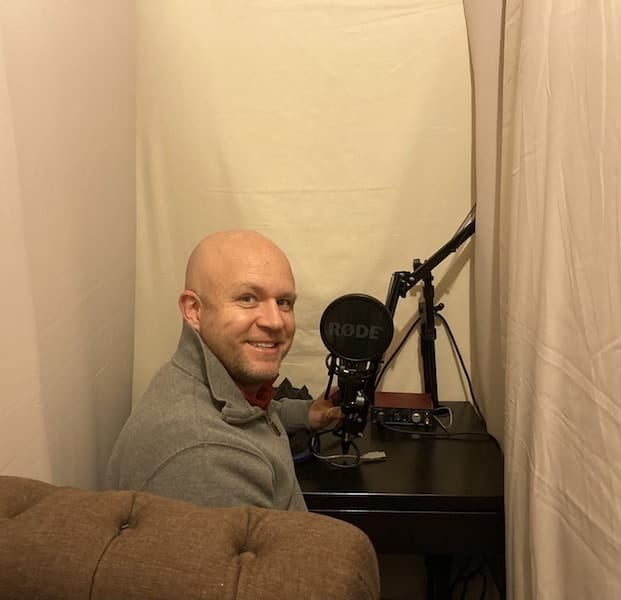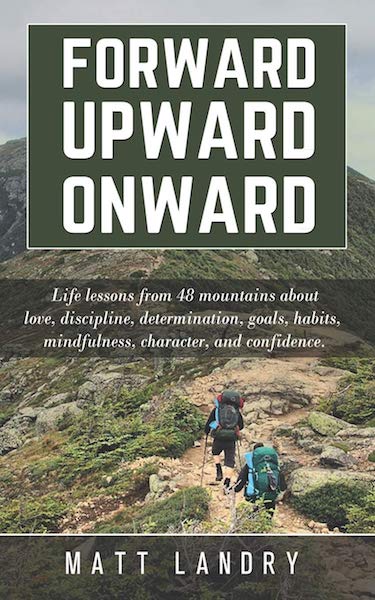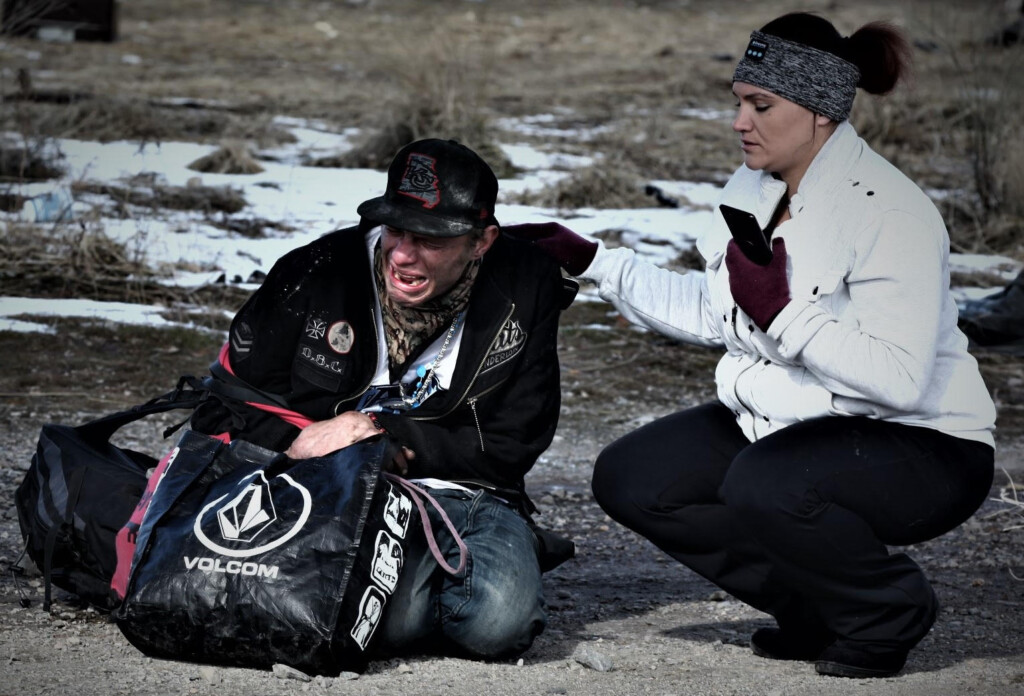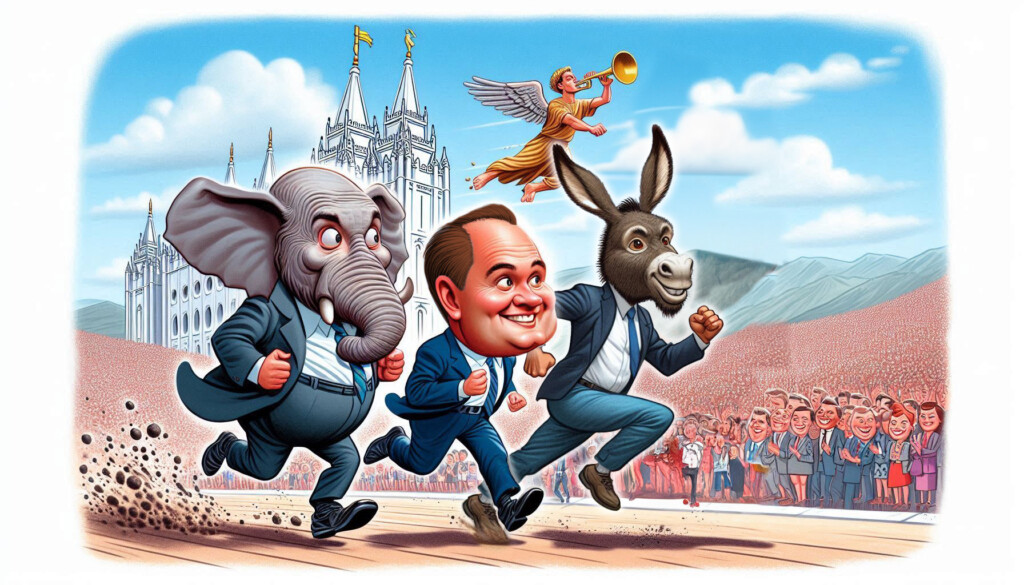
When Josh Berndt retreats into his home studio he asks his family to avoid walking on the hardwood floors above him. “When you’re recording you realize how every little thing can make a sound,” says Berndt.
Berndt ventured into audiobook narration and voiceover work on a friend’s suggestion. He missed being behind the microphone after leaving the world of broadcasting. Working in radio was his dream job but after ten years in the business, the constant moving it demanded was just too hard on his family.
Turns out narration work takes a whole different set of skills so he took a voiceover class and hired a coach. With the help of some noise reducing curtains and a soft chair, he transformed a spare closet into his home studio and launched his own voiceover company. “A closet is your best friend. Environment is number one, even if you have a good voice,” he explained.
Berndt mostly narrates audiobooks like biographies and business books but also dabbles in e-learning projects and voiceover work for commercials, promos, and sports. To land gigs, he relies on a couple of agents to send him auditions and also acts as his own agent scouring sites such as ACX (Audible’s meeting place for narrators) and Findaway Voices which helps match narrators to authors. “Like any gig, it takes a lot of hustle. If you want to do a book a month it is a ton of work,” said Berndt.

Although many authors narrate their own books, some try it and realize it is much more work than they thought. Besides simply reading into a microphone, audiobooks require quite a bit of preparation, proof listening, and editing. Narrators work closely with authors and authors always have the final say on how their book sounds.
To prepare himself for a new gig, he’ll read the entire book first if it’s fiction. If it’s a nonfiction book, he can usually get away with only reading a few chapters. This helps him get a feel of the flow of the book and allow him to figure out how he’ll differentiate individual voices or characters. To maintain a strong and consistent voice while recording (and avoid extensive editing work down the line), he avoids carbonated beverages, always brushes his teeth before recording, runs through a few vocal warmups, and makes sure he has plenty of water on hand.
Berndt warns that audiobook narration work can sometimes take the fun out of reading, “I will read some fast moving books for fun but when you read for hours a day and it’s sometimes boring, it is hard to keep reading.”
Berndt has no plans to leave his work as the communications coordinator at Thanksgiving Point or as a communication course instructor at Utah Valley State University for full-time audiobook reading. His narration work is just a fun thing to do for extra money and it satisfies his itch for recording.
For anyone looking to get into audiobook reading or perhaps start a podcast, he recommends investing in good equipment first and foremost. “My number one is advice is to have the right equipment – it might cost a lot upfront but your product will be something you are proud of.”





